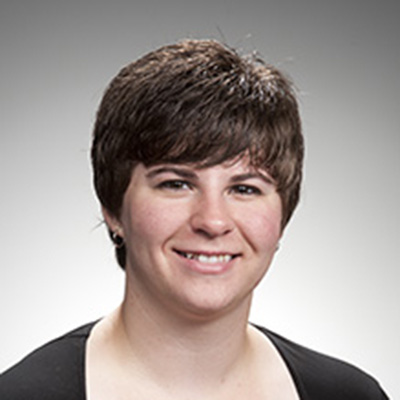ECE student Heather Stephens makes her mark at Delphi Electronics & Safety
A junior in computer engineering at Purdue, Heather Stephens says she wants to work in consumer electronics. “Anything you see in Best Buy, I want to be part of that,” she says. “My dream job would be to work for Sony and develop the PS-5.”
On her way to that goal, Heather has gotten a taste of an engineer’s work life at Delphi Electronics & Safety in Kokomo, Indiana, where she has spent three co-op sessions (with two more to go) with the automotive company.
During her first session, she says, her employer had her working in power electronics in the systems engineering group, doing circuit diagrams, testing circuit boards, and performing editing and documentation related to hybrid electric vehicles. During her second session, she worked in simulation, automating testing of parts and systems in a controlled setting.
Her most recent session was in IDI (infotainment and driver interface), where she worked on radios and navigation. “My friends asked me, ‘So what do you do?” she says. “I’d say, ‘I play with radios all day.’”
“Playing” took the form of testing software, writing software-change requests, and confirming that requested changes were in fact made. “We were working with the European version of a radio, and in Europe they’re very strict about their radio quality and the quality of the metadata—the artist’s name, the song title, and other information that appears on the display,” she says. “I acted as a systems engineer. It’s a collaboration of hardware and software, working with different competencies to make it all flow.”
Her co-op experience has confirmed that what she’s learning at Purdue is important, and it’s made the theoretical concrete: “You actually have a product in front of you, you’re testing things, you’re learning what the different parts of a lab bench are—using those parts and applying them to a product.”
Her advice to other students considering co-op:
(1) Don’t underestimate what a freshman or sophomore can offer in the workplace.
(2) Never underestimate your skills. “I went into the computer engineering field,” she says, “but I’m just as proficient at English as at math and science. That helps a lot in systems engineering.”
(3) Remember that you can excel in the real world. “In high school, I always prided myself on my grades,” she says. “At Purdue it was completely different—in one class, I was excited to get a C, because it meant that I passed the course. Then I go into my co-op position and can still do well. I want to learn—I want to do things—and that has paid off.”
Indeed. Heather’s supervisor, Chad Reida, cites Heather’s strong desire to learn new things and apply her knowledge; her outstanding attitude; and her adaptability, communication and time-management skills—along with her technical ability—as factors in her success as a co-op student. “Heather developed a vehicle test plan for our product that could be performed during all developed cycles and executed by anyone on the team,” says Reida. “She became such an effective member of the design team that most of the other engineers did not realize that she was a co-op student.”

